Since independence, Azerbaijan has established relations with Western countries at a high level. It has liaised and cooperated with these states and the institutions they created.
Azerbaijan and NATO have bilateral relations. 2022 will be the 30th anniversary of cooperation between the Alliance and Azerbaijan. Relations between Azerbaijan and NATO began with Azerbaijan's accession to the newly formed North Atlantic Cooperation Council. Azerbaijan's cooperation with NATO developed in 1994 with the signing of the Partnership for Peace framework document by the late President Heydar Aliyev in Brussels. According to a decree signed by him on November 21, 1997, a diplomatic mission of Azerbaijan to NATO was established.
One of the main directions in Azerbaijan's foreign policy is integration into the Alliance. Azerbaijan has joined NATO's Partnership for Peace since 1994 and the Individual Partnership since 2004. In 1999, it became an observer in the NATO Parliamentary Assembly, and in 2002 an associate member. In 1994, the Partnership for Peace (PfP) Framework Document was signed with NATO to develop security and defense cooperation. In November 1997, Azerbaijan joined the PfP Planning and Review Process to be involved more closely in the defense planning of NATO operations. According to the decree of the President of Azerbaijan dated November 12, 1997, a Special Commission on Cooperation with NATO was established. On May 12, 1998, the NATO Political Committee discussed Azerbaijan's participation in the PfP in the "19 + 1" format. On November 15, 1998, the Partnership for Peace (PfP) Status of Forces Agreement (SOFA) and its Additional Protocol were signed by Azerbaijan. In September 1999, a special working group of the Euro-Atlantic Partnership Council was established to study regional cooperation in the Caucasus.
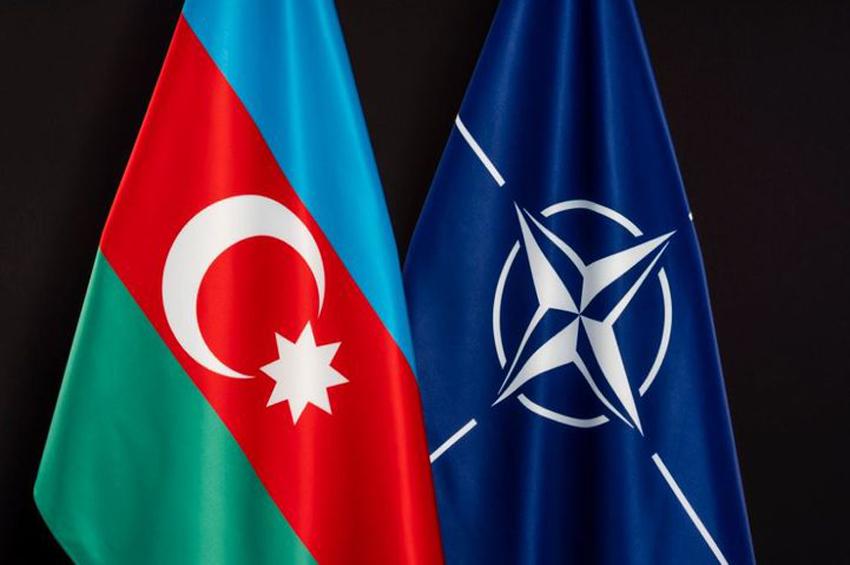
During the presidency of Ilham Aliyev, cooperation between NATO and Azerbaijan has expanded since joining the Individual Partnership Action Plan in 2004. Aliyev has visited NATO headquarters six times, and NATO Secretary Generals visited Azerbaijan three times. The Azerbaijani president attended 7 NATO summits (Istanbul 2004, Bucharest 2008, Lisbon 2010, Chicago 2012, Cardiff 2014, Warsaw 2016, Brussels 2018).
The Alliance has always supported the sovereignty and territorial integrity of Azerbaijan. This support was reflected in nine summits of the organization. The final documents of the summits expressed support for Azerbaijan's independence, sovereignty and territorial integrity. These documents emphasize the importance of resolving the conflicts in the South Caucasus, including the former Armenian-Azerbaijani conflict, under the norms and principles of international law. Declarations made at the meeting of the North Atlantic Alliance in Riga on November 28-29, 2006, NATO / EAPC and ISAF summit in Bucharest on April 2-4, 2008, and the summit held in Strasbourg on April 3-4, 2009, supported Azerbaijan's territorial integrity.
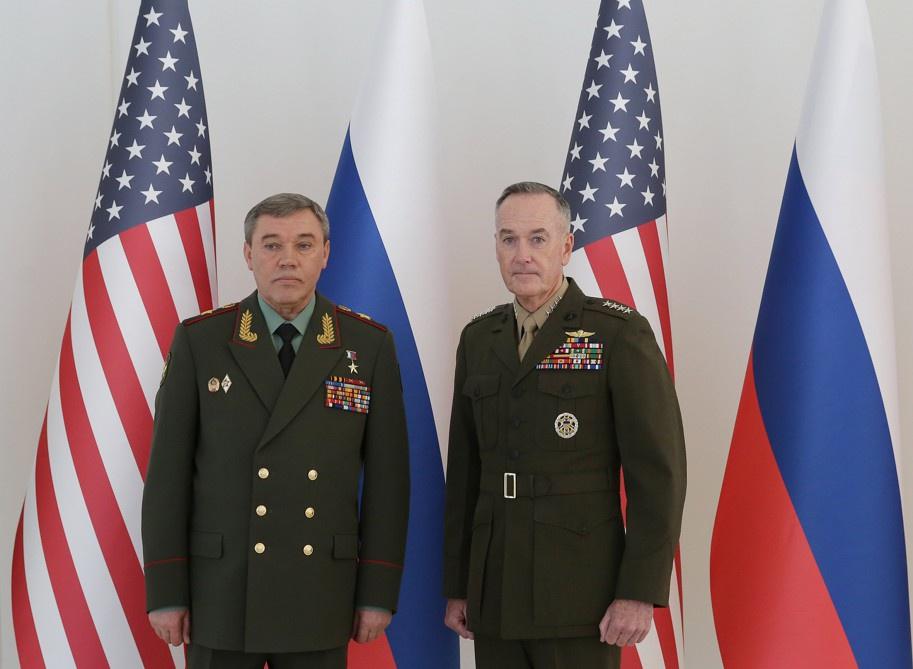
NATO repeatedly called on Azerbaijan and Armenia to negotiate a ceasefire during the Second Karabakh War. In October 2020, at a press conference, NATO Secretary-General Jens Stoltenberg told Armenian President Armen Sarkissian that the Alliance was not involved in the conflict. NATO has also accepted the new reality created after Azerbaijan's historic victory in the Second Karabakh War. An item referring to the former Armenian-Azerbaijani conflict was removed from the final text of the NATO Summit in Brussels in June this year. It shows that the Alliance considers the conflict finished.
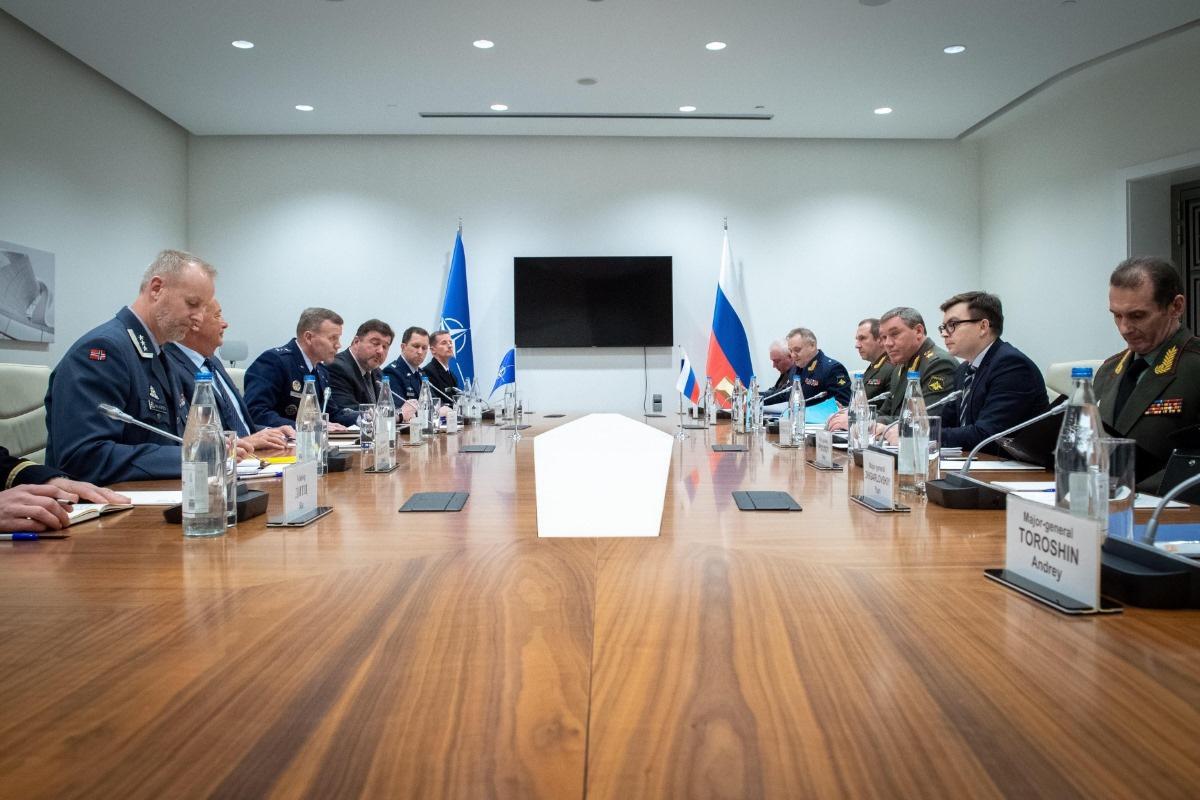
The main areas of practical cooperation between Azerbaijan and NATO are reforms in the defense and security sector, participation in international operations, emergency preparedness, scientific and environmental issues related to security and public diplomacy. Serious steps have been taken to bring the Azerbaijani Armed Forces in line with NATO standards. Since 2002, more than 30 Azerbaijani officers have served at NATO headquarters and agencies. At present, Azerbaijani Army officers serve at NATO Headquarters (Brussels, Belgium) and in the Partnership Office of the NATO Allied Command Europe (Mons, Belgium). Azerbaijan and NATO have successfully implemented practical projects, such as the Saloghlu and Jeyranchol projects on mine and unexploded ordnance disposal. Units of the Azerbaijani Armed Forces have participated in peacekeeping forces in Kosovo, Iraq and Afghanistan at various times.
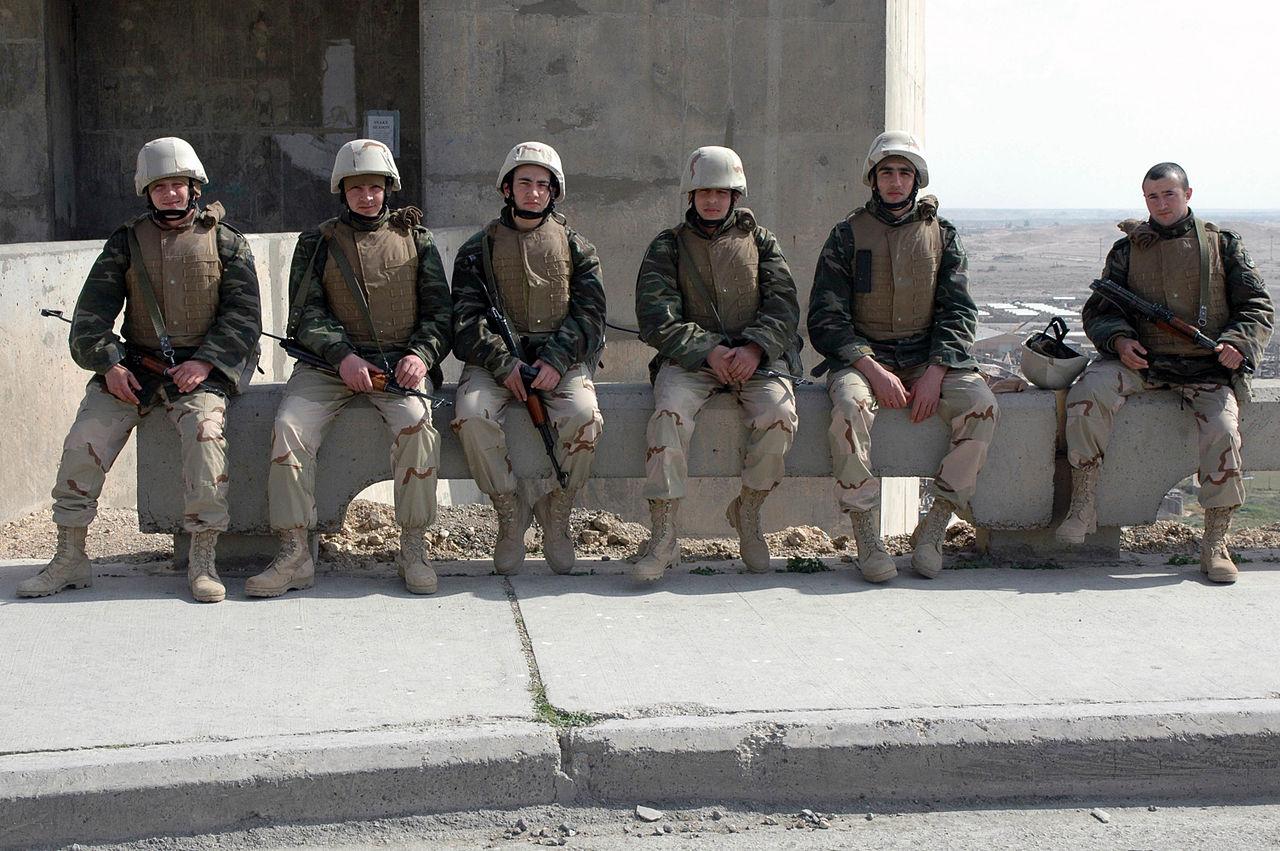
Azerbaijan participated in the Kosovo Force (KFOR), the NATO-led international peacekeeping force in Kosovo in 1999-2008. On September 1, 1999, Azerbaijan sent a unit of 34 servicemen (32 soldiers, 2 officers) to Kosovo. In total, 362 Azerbaijani servicemen (345 soldiers, 17 officers) served in the mission in Kosovo. Azerbaijani service members completed their mission in Kosovo on March 4, 2008. Azerbaijani service members also carried out a peacekeeping mission in Iraq. From August 15, 2003, to December 7, 2008, the Azerbaijani military contingent consisting of 151 personnel (120 soldiers, 31 officers) took part in the peacekeeping mission within the International Coalition Forces of Iraq. Azerbaijan withdrew its forces from Iraq on December 7, 2008, due to the withdrawal of coalition forces. On November 15, 2002, Azerbaijan sent a military unit of 22 service members to support the International Security Assistance Force (ISAF) operation in Afghanistan. Since February 2009, 90 Azerbaijani personnel have served in the ISAF-led Turkish unit. In January 2018, the number of personnel of the peacekeeping contingent of the Azerbaijani Army on the "Resolute Support" mission conducted by NATO in Afghanistan reached 120 people. The peacekeeping contingent of the Azerbaijani Army carried out the task of guarding Kabul International Airport and was represented in the relevant headquarters. Azerbaijani troops guarded a television tower in Kabul, ISAF's central ammunition depot, and patrolled the areas. NATO Secretary-General Jens Stoltenberg thanked Azerbaijan for its services in ensuring security at the airport in August 2021.
In 2017-2020, Azerbaijan hosted 7 NATO-Russia and US-Russia meetings of high-ranking military officials.
A postage stamp dedicated to the 15th anniversary of Azerbaijan-NATO relations was also issued.
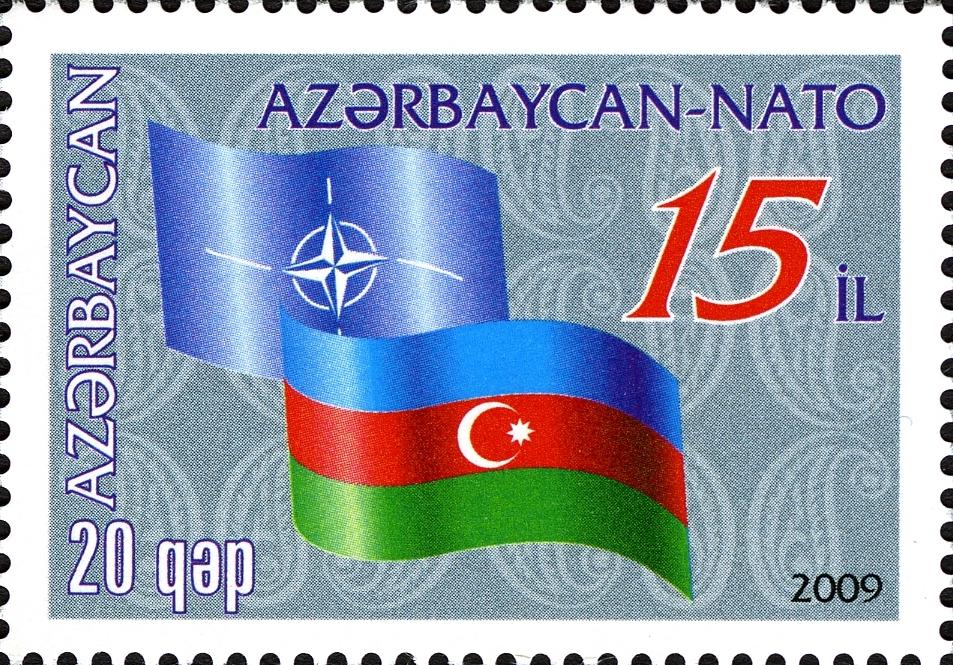
Along with security issues, NATO-Azerbaijan cooperation is being successfully developed in other areas such as science and education. The Azerbaijani Army, which has been cooperating with NATO in the field of education since 2008, has taken steps to bring the content and form of special military education in line with European educational standards and the Bologna Process, as well as to improve teaching staff, using NATO's Defense Education Enhancement Program. NATO's Science for Peace and Security Program is an important tool for expanding cooperation and dialogue between NATO and Partners through the development of science and innovation, addressing mutual security challenges, exchanging knowledge, and conducting research and innovation. The Azerbaijani Defense Ministry has signed several projects under the program. These are just some of the many facts that reflect the cooperation between Azerbaijan and the Alliance. Cooperation between the parties still continues and develops.
On December 13, President of Azerbaijan Ilham Aliyev paid a working visit to Brussels to attend the 6th summit of the European Union's Eastern Partnership program. As part of his working visit, the president will participate in the North Atlantic Alliance meeting on December 14. A meeting between the President and NATO Secretary-General Jens Stoltenberg will be held at the organization's headquarters. This meeting of President Ilham Aliyev at NATO is different from the previous ones. It can be assumed that the Azerbaijani president and the NATO secretary-general will no longer discuss the former conflict. Against the background of new realities in the region, the meeting is expected to focus on Azerbaijan's possible contribution to international security. All these factors confirm the development of cooperation between Azerbaijan and NATO. It can be presumed that after the territorial integrity of Azerbaijan is ensured, cooperation between the parties will further develop, expand and move to a new stage.


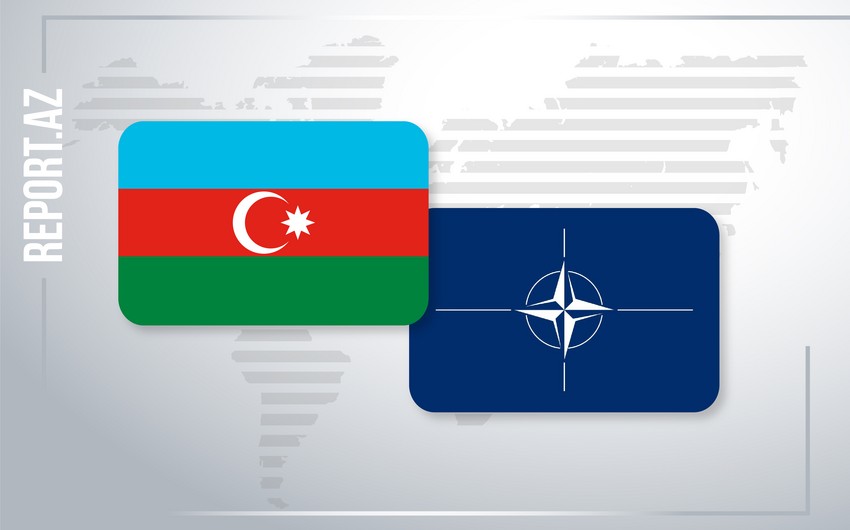 https://static.report.az/photo/83662846-fb5a-3eef-a483-ba46a6746746.jpg
https://static.report.az/photo/83662846-fb5a-3eef-a483-ba46a6746746.jpg

